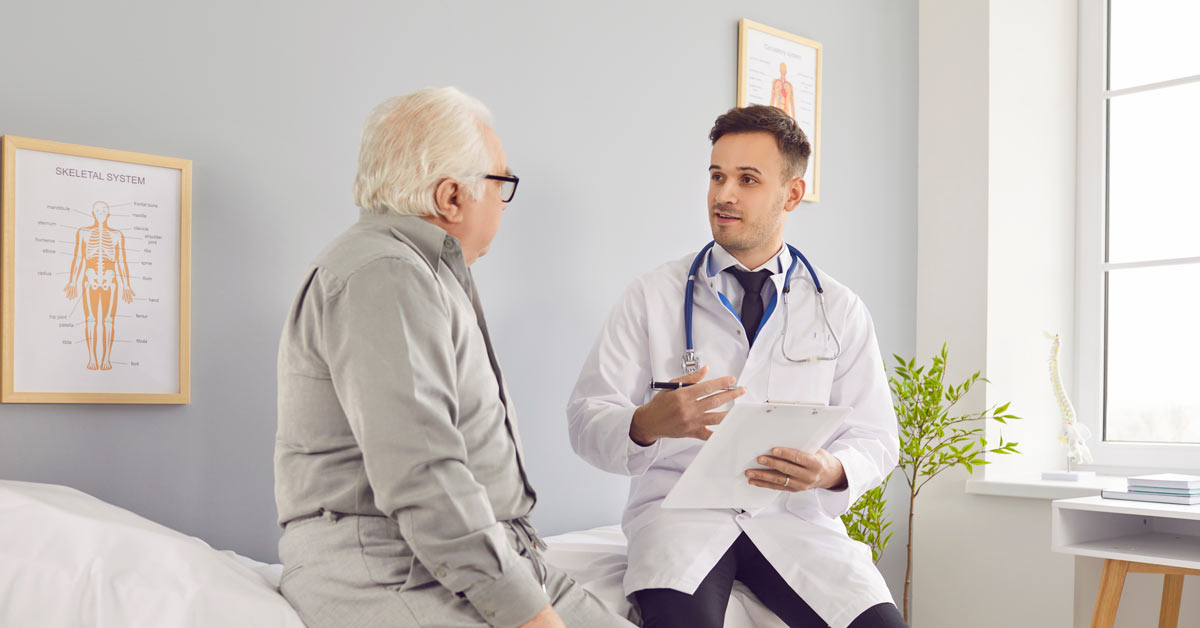Access Your Doctors Easily, Minimize Exposure to COVID-19, and Eliminate Travel Time and Expense
For many years, telehealth—also referred to as telemedicine, e-health, and video visits—has been a valuable tool. But it was reserved primarily for people who had difficulty visiting their doctor, clinic, or hospital.
The pandemic has expanded the use of telehealth. The US government has relaxed some requirements, making telehealth more available to more people than ever before.
This is especially important for people with diabetes. They must have easy access to their doctors to effectively manage and monitor their condition to prevent serious healthcare complications, including:
- Kidney disease
- Heart disease
- Eye disease
- Stroke
- Nerve damage
- Depression
Carly Burton, Apria’s Certified Diabetes Care and Education Specialist, adds, “People with diabetes are also more likely to have serious complications from COVID-19. So reducing your exposure is critical.”
But the question is: can a virtual telehealth visit with a doctor be more effective than an in-person visit? Yes! In fact, studies show that people with diabetes who take advantage of telehealth to manage their condition actually have lower HbA1c levels and improved outcomes than those who use traditional care.
Getting Care from the Comfort of Home
Thanks to the widespread availability of various video conferencing programs, such as Zoom, Facetime, and Skype, telehealth offers people with diabetes a variety of advantages:
- Lets you quickly and easily connect with your doctor to effectively manage your condition—all from the comfort of your home
- Eliminates the time and expense of traveling to and from your doctor’s office
- Decreases the risk of acquiring other infections, such as COVID-19, when visiting your doctor
- Provides easy access to healthcare professionals if you live in a rural area
- Allows your doctor to regularly monitor your blood sugar levels, blood pressure, weight, and overall treatment plan, and answer any questions you may have
- Gives your doctor the opportunity to share test results with you and other members of your healthcare team
- Lets your doctor conveniently fill and refill prescriptions
- Offers added resources and support for people with psychological issues such as depression
Apria’s Carly Burton states, “Working with your doctor, you can use your computer, tablet, or smartphone to access apps that keep track of your blood sugar levels, diet, exercise plan, and other vital signs.”
It’s Easy to Prepare for Your Telehealth Visit
To get the most out of your telehealth visit with your doctor, take a few simple steps:
- Be sure that your computer, tablet, or smartphone has internet access to the video conferencing app your doctor uses. If you have any questions or need help, contact your doctor’s office, who can explain how to set this up
- Test the system before your telehealth visit to ensure it is working properly
- Conduct the visit in a quiet, private space where Wi-Fi is strongest
- If you are using devices such as a continuous glucose monitor (CGM) to keep track of your glucose levels, download that data and share it with your doctor
- Also share recent A1c results, blood pressure readings, and your weight
- Tell your doctor about any changes you’ve noticed in your overall health and your diabetes specifically
- Keep your medications handy and let your doctor know if you need any refills
- Wear comfortable, loose-fitting clothes in case your doctor needs to examine parts of your body
- Prepare a list of any questions you want to ask
So Much Is Similar to An In-Person Visit
A telehealth visit is very similar to an in-person visit. Your doctor may ask a variety of questions about your health, including:
- How often you measure your blood sugar
- Any recent lab work you’ve had
- Your diet and exercise plan
- Your weight
- Your medications
- If you’ve had symptoms of any nerve damage or numbness in your hands or feet
- The frequency and severity of low blood sugar (hypoglycemia) or high blood sugar (hyperglycemia)
- Your alcohol and tobacco use
- If you are having any symptoms of depression or other psychological issues
- Any changes to your lifestyle
Based on your answers, your doctor may recommend changes to your diet and medications.
Sometimes, an In-Person Visit Is Necessary
Although telehealth visits offer many advantages, there are times when an in-office visit with your doctor is best:
- If you’re experiencing any complications or having difficulty managing your diabetes at home
- If you need to schedule a first-time visit with a doctor
- If you need a physical exam
- If your doctor needs to thoroughly examine your skin, feet, or injection sites
- If you have other health conditions that need to be monitored, such as eye problems
- If you are having frequent episodes of low blood sugar
- If you are experiencing sudden fatigue and blurred vision
- If you have signs of a serious infection
- If you need bloodwork or imaging tests
- If you are unable to measure your blood pressure at home
- If you don’t have access to a computer, tablet, smartphone, or Wi-Fi
Connect to Care Virtually, Conveniently, and Effectively!
If the pandemic has interrupted regular checkups with your doctor, telehealth may be right for you. Reach out to your healthcare provider’s office with questions about how to set up an appointment.
Carly Burton from Apria recommends you address one more question before a telehealth visit: “Most insurance companies cover telehealth. But to be safe, call them to ensure they do. If they don’t, ask your doctor about the cost.”

.png)



